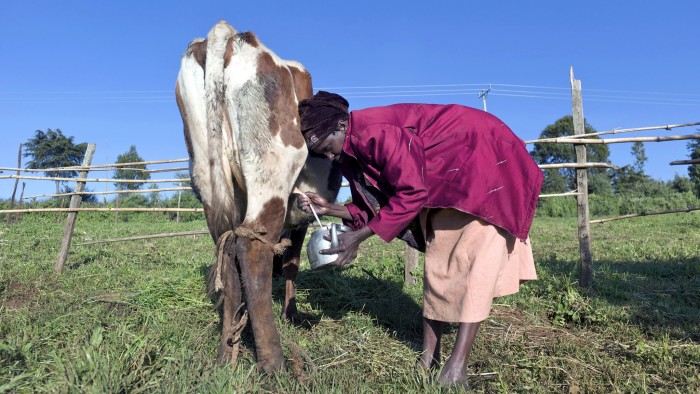Wealthy deterred from impact investing

Roula Khalaf, Editor of the FT, selects her favourite stories in this weekly newsletter.
Well-intentioned individuals are refraining from investing for social good, not due to a lack of opportunities, but because it is too daunting to weigh them up against traditional investments.
Despite investor interest in impact investing — which targets social benefits as well as financial returns — it remains at the sidelines of the financial mainstream, with fewer than one in ten investors having taken the plunge, according to research by Barclays Wealth and Investment Management.
“People think that impact investing is way too complex, so it is simpler to give money through philanthropy and keep investments separate,” said Greg Davies, behavioural finance specialist at Barclays.
An 18-month Barclays study, published on Thursday, found that only 9 per cent of 1,800 retail investors and wealthy individuals surveyed had made impact investments, despite more than half (56 per cent) reporting an interest in doing so.
Mr Davies said that attempts to unlock billions of pounds in potential impact investment will remain unsuccessful so long as the market focuses on increasing the supply of products.
“Nobody has been asking how can we get investors comfortable with this,” he said. “It’s a new field, it feels uncomfortable [and] when faced with making difficult decisions, people abdicate responsibility and step back.”
Following the study, Barclays is introducing a profiling tool to help its wealthy clients re-evaluate how much they invest for impact and give away to charity.
By responding to 25 statements designed to measure their attitude towards the balance of social and financial priorities, as well as moral duty, personal satisfaction and financial security, the bank’s behavioural framework will help individuals work out how much of their investable wealth should be allocated to philanthropy and impact investing.
“For typical investors, if they follow the framework we estimate it will give them the confidence to invest twice as much in social good,” said Mr Davies.
Barclays’ research suggests that a rise in impact investment would not be to the detriment of investors’ charitable donations, with only 7 per cent of those surveyed saying they would reduce the value of their gifts.
The two are clearly viewed distinctly, however. More than four in five investors told Barclays they would expect a financial return from impact investing that is either close to the market benchmark or above it. Only 19 per cent said they would expect to sacrifice performance.
Charity calls for ‘impact investing’ Isas

A leading charity is calling for the launch of Isas specialising in impact investing to provide smaller investors with a tax-efficient way of investing in enterprises that combine financial returns with social or environmental benefits.
Read more
James Dickens, principal at chartered financial planners Grierson Dickens, said this view is common among wealthy individuals who are becoming interested in making impact investments.
“Clients don’t want to invest more in mainstream equities, nor leave more it in the bank or to their children, but nor do they want to give it away,” he said.
To encourage individuals to support initiatives with a social objective, the UK government introduced a generous tax break — social investment tax relief (SITR) — to offset the typically high risks and low returns.
Low investment limits, due to be extended later this tax year, have held back the use of the relief, but last month UBS became the first bank to offer a social investment fund targeting SITR to its clients.
The £5m fund, which looks to tackling poverty-related issues such as employability and homelessness, targets annual returns of 7.1 per cent for higher rate taxpayers, taking tax reliefs into account.
Mr Dickens cautioned that tax relief has only minor influence over impact investment decisions, not least because the money at stake usually represents a very small proportion of their investable assets.
“Quite often, people will have already made significant charitable donations . . . They don’t care that much about saving tax on these kind of investments.”
Letter in response to this article:
Bank advisers primed to boost impact investment / From Rodney Schwartz
Comments